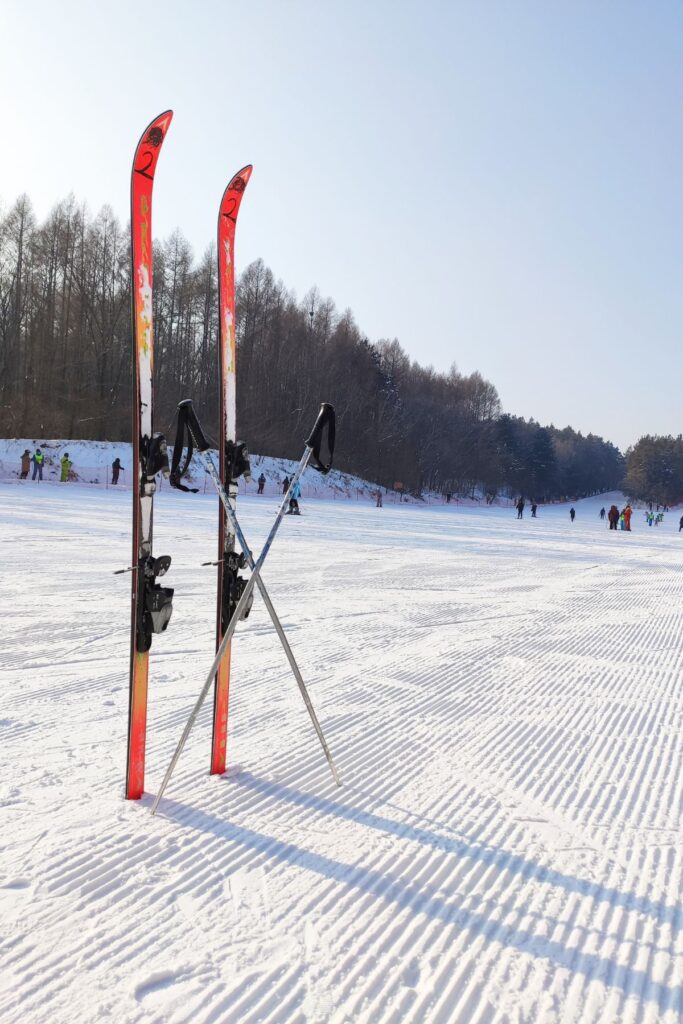
Saunas have been a part of relaxation and wellness for centuries, offering a unique combination of physical and mental health benefits. From ancient Finnish traditions to modern-day spa experiences, the practice of sitting in a sauna has grown in popularity due to its ability to provide both relaxation and rejuvenation.
Especially during skiing! Think about after a long day on the slopes, nothing beats the soothing warmth of a sauna. Skiing, with its physical demands and cold exposure, can leave your muscles aching and your body in need of recovery.
Physical health benefits
Muscle recovery
As skiing can put a significant strain on your muscles, leading to soreness and fatigue,recovery and relax is truly important. The heat from a sauna helps relax muscles and improve blood flow, reducing discomfort and promoting faster recovery.
Sauna sessions help decrease lactic acid buildup, a common cause of post-exercise muscle stiffness.
Improved circulation
The intense heat in a sauna dilates blood vessels, enhancing circulation throughout the body. After skiing, where your legs and core muscles have been put to the test, improved circulation aids in flushing out toxins and delivering nutrients to repair tissues.
Joint flexibility and pain relief
Skiing can lead to joint strain, especially in the knees, ankles, and hips. The heat from a sauna increases joint flexibility and reduces inflammation, making it easier to move and reducing stiffness after a long day on the slopes.
Detoxification
Sweating in a sauna helps your body eliminate toxins more effectively. After a day spent skiing in colder weather, where the body may struggle to release waste products, a sauna can help detoxify and restore balance.
How sauna supports detoxification:
During a sauna session, the body produces sweat, which opens pores and allows for the release of impurities. This process helps remove toxins that accumulate in the body from physical exertion, pollution, and other environmental factors.
Sauna use stimulates lymphatic drainage, which is essential for detoxification. The increased blood circulation and heat exposure help flush waste products through the lymphatic system, supporting better elimination of toxins and waste from the body.
Skiing often results in inflammation, and sauna use can help counteract this by reducing lactic acid buildup and oxidative stress. This allows the body to recover faster and more efficiently, maintaining balance and reducing the load on the detoxification organs like the liver and kidneys.
Respiratory health
Cold mountain air combined with intense physical exertion can put strain on the respiratory system. Saunas open up airways and promote deeper breathing, aiding in respiratory recovery and overall lung health.
Mental and emotional benefits
Stress relief
Skiing, especially in colder and challenging environments, can be physically demanding and mentally stimulating. A sauna provides a tranquil space for relaxation, allowing the mind to unwind and reducing feelings of stress and tension. The heat encourages deep breathing, promoting a calm, meditative state that can help clear the mind after an intense day on the slopes.
Mood boost
The warmth of a sauna helps to release endorphins, the body’s natural “feel-good” chemicals. After skiing, which can be exhilarating but also tiring, sauna sessions offer a natural way to boost your mood and improve overall emotional well-being. This makes it easier to transition from an active day to restful relaxation.
Better sleep quality
After a day of skiing, your body may be physically drained but your mind can still be buzzing with excitement or overstimulation. The soothing heat of a sauna helps relax both the body and mind, preparing you for deeper, more restful sleep. Improved circulation and a reduction in stress contribute to a more balanced and rejuvenating night’s sleep.
Enhanced focus
The quiet and meditative atmosphere of a sauna allows for a break from the busyness of life. After a full day of skiing, this mental reset can enhance focus, clarity, and emotional resilience. Many people find that sauna sessions improve their ability to think clearly and process emotions effectively.
Improved mental well-being in general
Saunas encourage mindfulness by promoting the present moment. Skiing can be exhilarating, but it can also create mental fatigue from constant movement. A sauna provides a calm space to relax, reflect, and simply “be” — improving emotional well-being and helping to balance both high-energy physical activity and the need for mental rejuvenation.
Heat from the sauna stimulates the production of heat shock proteins, which play a significant role in protecting cells from stress and damage. These proteins help strengthen the body’s immune response, making it more effective at combating illnesses and improving recovery after strenuous physical activities.
Whether it’s detoxifying the body, enhancing immune function, or simply promoting a state of calm and mindfulness, saunas play a keyrole in balancing the physical and emotional demands that come with active lifestyles like skiing.
So, the next time you hit the slopes, don’t forget to embrace the healing power of a sauna—an age-old tradition that continues to elevate wellness in the modern world.


